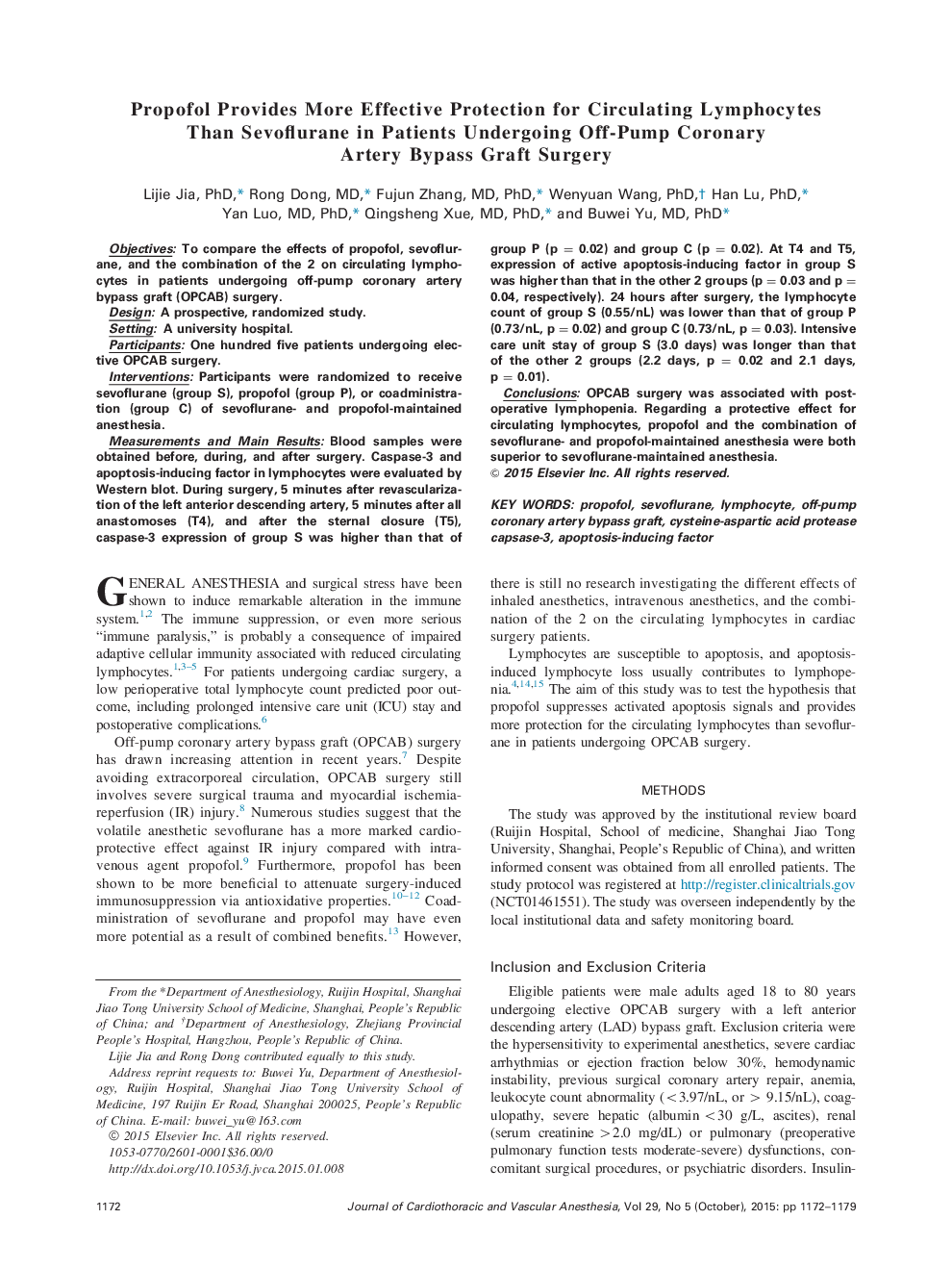| Article ID | Journal | Published Year | Pages | File Type |
|---|---|---|---|---|
| 2759346 | Journal of Cardiothoracic and Vascular Anesthesia | 2015 | 8 Pages |
ObjectivesTo compare the effects of propofol, sevoflurane, and the combination of the 2 on circulating lymphocytes in patients undergoing off-pump coronary artery bypass graft (OPCAB) surgery.DesignA prospective, randomized study.SettingA university hospital.ParticipantsOne hundred five patients undergoing elective OPCAB surgery.InterventionsParticipants were randomized to receive sevoflurane (group S), propofol (group P), or coadministration (group C) of sevoflurane- and propofol-maintained anesthesia.Measurements and Main ResultsBlood samples were obtained before, during, and after surgery. Caspase-3 and apoptosis-inducing factor in lymphocytes were evaluated by Western blot. During surgery, 5 minutes after revascularization of the left anterior descending artery, 5 minutes after all anastomoses (T4), and after the sternal closure (T5), caspase-3 expression of group S was higher than that of group P (p = 0.02) and group C (p = 0.02). At T4 and T5, expression of active apoptosis-inducing factor in group S was higher than that in the other 2 groups (p = 0.03 and p = 0.04, respectively). 24 hours after surgery, the lymphocyte count of group S (0.55/nL) was lower than that of group P (0.73/nL, p = 0.02) and group C (0.73/nL, p = 0.03). Intensive care unit stay of group S (3.0 days) was longer than that of the other 2 groups (2.2 days, p = 0.02 and 2.1 days, p = 0.01).ConclusionsOPCAB surgery was associated with postoperative lymphopenia. Regarding a protective effect for circulating lymphocytes, propofol and the combination of sevoflurane- and propofol-maintained anesthesia were both superior to sevoflurane-maintained anesthesia.
